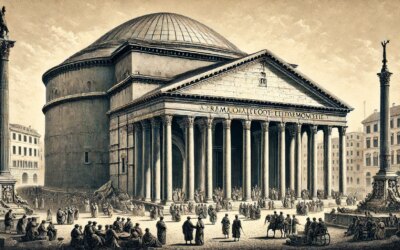The Council of Nicaea: A Defining Moment for Christianity
In 325 AD, the Roman Empire stood at a crossroads. Christianity, once a persecuted sect, was now a dominant force, largely due to Emperor Constantine the Great’s policies. However, theological disputes threatened to divide the faith. To resolve these conflicts, Constantine convened the Council of Nicaea, the first ecumenical council in Christian history. This pivotal gathering shaped Christian doctrine and solidified the relationship between the Church and the Roman state.
Constantine’s Role in Christianity
Before Constantine, Christians had faced centuries of persecution. The turning point came with the Edict of Milan in 313 AD, which granted religious tolerance throughout the empire. As Christianity gained influence, theological divisions arose, particularly concerning the nature of Christ. Constantine, seeing the faith as a unifying force for his empire, sought to settle these disputes.
The emperor called for a council in the city of Nicaea (modern-day İznik, Turkey), inviting bishops from across the empire to attend. Though not a theologian himself, Constantine presided over the meetings, emphasizing the need for unity and doctrinal clarity.
The Arian Controversy: A Debate Over Christ’s Divinity
The primary issue at Nicaea was the Arian controversy, a dispute over whether Jesus Christ was divine in the same way as God the Father. Arius, a priest from Alexandria, argued that Christ was created by God and therefore subordinate. His opponents, led by Bishop Athanasius, insisted that Christ was of the same divine essence as the Father.
This debate threatened to fracture the Church. If Christ were seen as a lesser being, the foundational Christian belief in salvation through him would be questioned. The council sought to establish a unified doctrine that would preserve the integrity of Christian teachings.
The Nicene Creed: Defining Christian Orthodoxy
After intense debates, the council formulated the Nicene Creed, a statement affirming that Christ was “begotten, not made, of one substance with the Father.” This declaration rejected Arianism and became a cornerstone of Christian theology. The Creed, with slight modifications, remains a fundamental profession of faith in many Christian denominations today.
Other Key Decisions of the Council
The Council of Nicaea addressed several other critical issues:
- The Date of Easter: The council standardized the celebration of Easter, separating it from the Jewish Passover and establishing a uniform date for all Christians.
- Church Hierarchy: It reinforced the authority of bishops and established the precedence of key sees, such as Rome, Alexandria, and Antioch.
- Canonical Law: The council enacted rules on clerical conduct and church discipline, ensuring a structured and organized leadership.
The Aftermath and Long-Term Impact
Though the Nicene Creed was adopted, Arianism did not disappear overnight. It continued to have supporters, including some later emperors. However, the council set a precedent for future ecumenical gatherings and laid the foundation for Christian orthodoxy.
Constantine’s involvement also signaled a new era in Church-state relations. Christianity, once marginalized, was now deeply intertwined with imperial power. This partnership would shape European history for centuries, influencing governance, culture, and religious authority.
Legacy of Nicaea
The Council of Nicaea remains one of the most significant moments in Christian history. It not only defined core theological beliefs but also established a model for resolving doctrinal disputes through councils. The decisions made in 325 AD continue to influence Christian doctrine and the structure of the Church today.
By bringing bishops together under imperial sponsorship, Constantine ensured that Christianity would emerge from its formative years as a unified and powerful institution. The debates of Nicaea echo through history, reminding us that the foundations of faith were built in an era of both political ambition and theological conviction.






